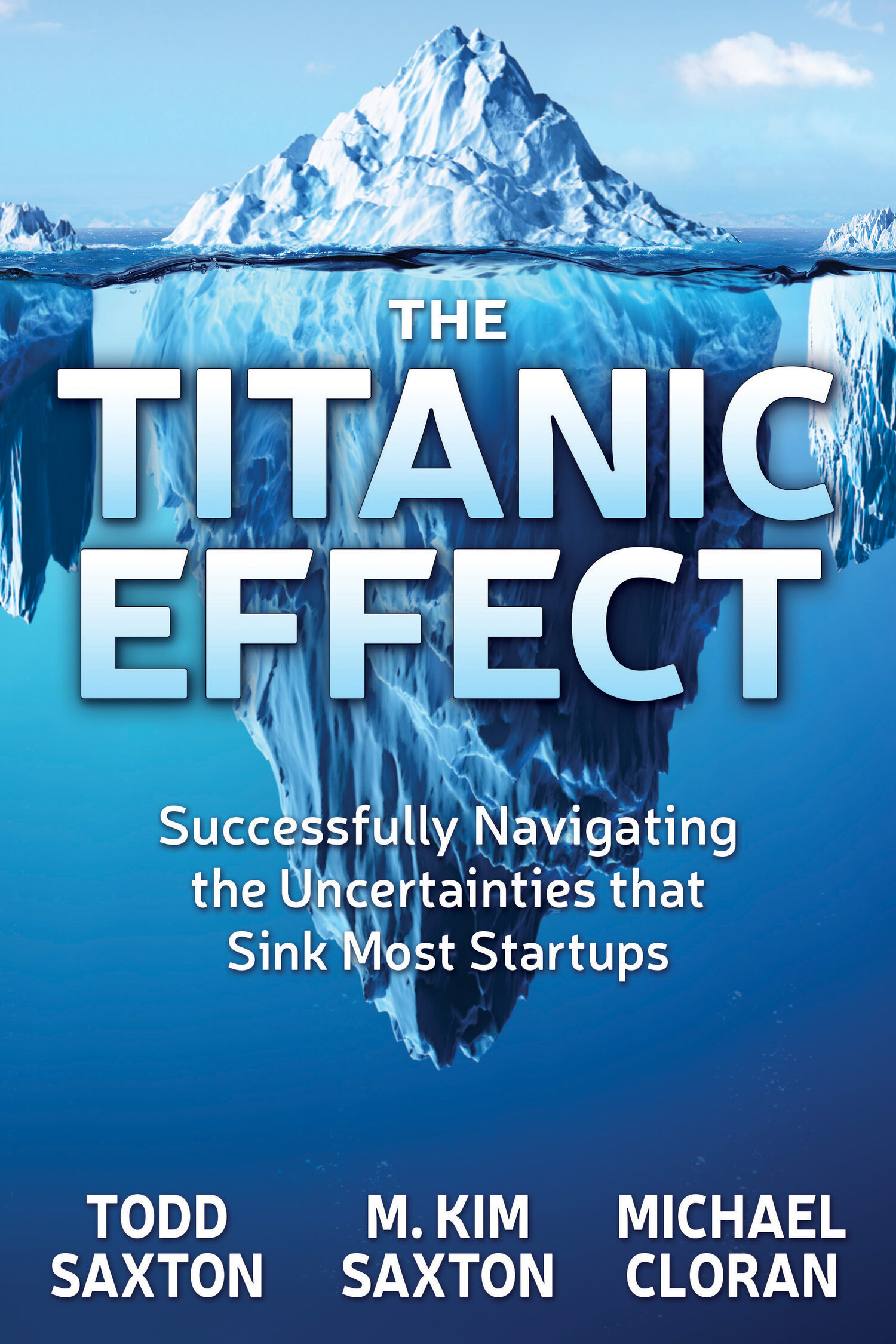Some of our posts have provided general guidelines for what to avoid at different stages of a startup. This week, we’d like to dig into an example of startup failure and show how these icebergs are fatal. Let’s look at Theranos.
You may know the overall story. It starts with a young Stanford student (Elizabeth Holmes) who has a great idea: Build a device that runs a wide range of tests on a single drop of blood. She starts a company called Theranos, secures $6 million in funding, and recruits a team from Stanford to help build the device. She finds pharmaceutical companies and retailers to use and help sell these tests. Over the next 10 years, she secures $900 million in investor funding and a $9 billion valuation. But wait, where’s the product? Oops, it turns out that the device not only does not have accurate test results, but also cannot do all of the tests claimed. This Stanford dropout is charged with “massive fraud” by the SEC and then with wire fraud and conspiracy to commit wire fraud by the DOJ. She was fined $500,000 and is banned from serving as director or officer of a publicly traded company for 10 years. Needless to say, Theranos is now, like the Titanic, sitting on the bottom of the ocean.
This week, we mapped the Theranos situation to The Titanic Effect framework in a webinar with the Society of Physician Entrepreneurs (SOPE) and hosted by The Physician’s Edge. Watch the 45-minute session here. Here is a summary of the major debtbergs that sank Theranos:
Misguided Motivation - At 7, Elizabeth Holmes, when she was asked about being POTUS, was quoted as saying, ”I want to be a billionaire because then the President will want to marry me.” Fame and fortune appear to have been more important to her than a working product.
Dearth of Diversity in the founding team – Well actually, it seems like there was only one founder as other “co-founders” had little decision-making power and were periodically forced out. The real problem was that there was no one with experience in building a startup, who had knowledge of blood testing science, or had an understanding of the challenges of building a medical device.
Inappropriate Investor/Advisor Role – Sadly, investors and advisors had little input to decision making as Holmes retained 90% of the power. Doubly sad is that while the board had many noteworthy figureheads (such as Henry Kissinger and George Schultz), none had any knowledge of blood testing or medical devices.
Crazed Culture – Over the years, the company developed a culture of secrecy and intimidation. Fear kept people quiet in the short-term. But in the long-run, it created an ample supply of whistleblowers.
Missing Mockups – Actually, Theranos had the opposite of a missing mockup, as the mockup ended up being the only product developed. We encourage founders in the early stages to cobble together a product using manual processes and duct tape while finding product/market fit. Sadly, after $900 million and 10 years, Theranos was still using its mockup for full production, but not really because they used regular testing equipment in a secret lab instead, and hence the fraud.
Poor Product Foundation and Mushy Process – Even the mockup never passed quality standards. Yet there was no real development plan for product evolution over time. So these quality problems were never fixed. Turns out, it’s really hard to innovate blood testing on three dimensions at once: 1) reduce blood volume, 2) reduce device size, and 3) add more tests in one device. Theranos might have won, if it had only focused on one dimension instead of the trifecta.
Unbalanced Effort – Fundraising, customer sales and employee hiring were all beyond the scope of what the product could do. We’ve shared how founders evolve their startups, but this is what Theranos looked like:
Theranos Development Across the 4 Components of a Startup
SOPE is an international non-profit with 30,000 followers and nearly 30 chapters worldwide that serves as a hub for life science innovators. Shout out to the moderator, Dr. Jeff Hausfeld, the co-founder of the SOPE and its current chairman of the board. Dr. Hausfeld also serves as chairman of the board and chief medical officer for Maryland-based bio-similars company, BioFactura. Check out their events and webinars at the link above!


